Introduction to the Importance of Off-Page SEO

In today’s competitive internet world, online presence is not just about having a website, but ensuring it is visible in search results.
This is where the concept of Off-Page SEO or Off-Page SEO shows its importance.
Off-Page SEO refers to a set of activities performed outside your website with the goal of improving your site’s ranking in search engine results pages (SERPs).
Key elements of these activities include #backlink building, #off-site content marketing, and #social media presence.
The quality and quantity of backlinks, which are among the most important factors in this area, indicate to search engines like Google how authoritative and trustworthy your website is.
The more backlinks received from authoritative and relevant sites, the higher your site’s Domain Authority (DA) and Page Authority (PA) will be, which in turn significantly helps improve your ranking.
Focusing on this aspect of SEO, namely Off-Page SEO, can make a huge difference in the amount of organic traffic and ultimately the success of your online business.
Without a strong Off-Page SEO strategy, even the best on-page content may not be well-seen.
Worried about losing customers because you don’t have a professional e-commerce site?
With e-commerce website design by Rasavob, forget these worries!
✅ Significant increase in sales and visitor-to-customer conversion rate
✅ Professional and user-friendly design that builds customer trust
⚡ Get free consultation from Rasavob
The Importance of Backlinks in Off-Page SEO and Their Types
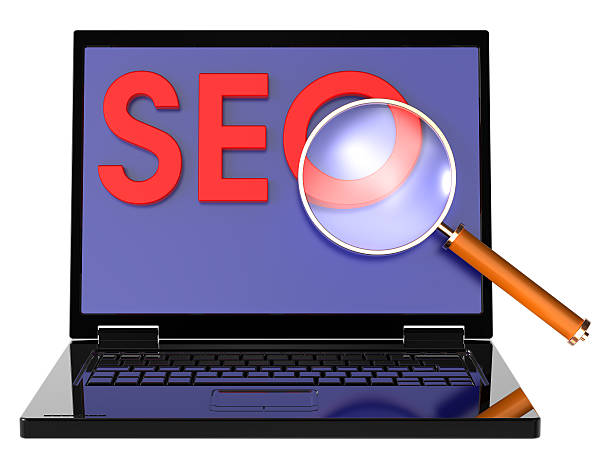
Backlinks are considered the backbone of any successful Off-Page SEO strategy.
They indicate to search engines that your content is valuable and referenceable because other websites have linked to it.
But not every backlink; quality takes precedence over quantity here.
High-quality backlinks are those that come from authoritative websites, relevant to your industry, and have high Domain Rating (DR) or Domain Authority (DA).
There are different types of backlinks, each with a different weight and impact on Off-Page SEO:
- Nofollow Backlinks: These types of links tell search engines not to pass page authority to the destination.
However, they can still drive traffic and act as a natural and diverse signal for your link profile. - Dofollow Backlinks: These are traditional links that pass page authority (link juice) from the source to the destination and play a very important role in improving ranking.
- Sponsored Links: Used for links created in exchange for payment and must be marked with the rel=”sponsored” tag to avoid Google penalties.
- UGC (User Generated Content) Links: For links created by users in comments sections, forums, or profiles and must be marked with the rel=”ugc” tag.
A diverse and natural backlink profile, comprising a mix of the above types, is crucial for successful Off-Page SEO.
This diversity indicates that the links were created naturally and not through manipulation.
Acquiring strong backlinks is like gaining a vote of confidence from other websites, which greatly helps your credibility and ranking.
This is a specialized matter that requires a deep understanding of link-building strategies.
Techniques for Building High-Quality Backlinks for Off-Page SEO
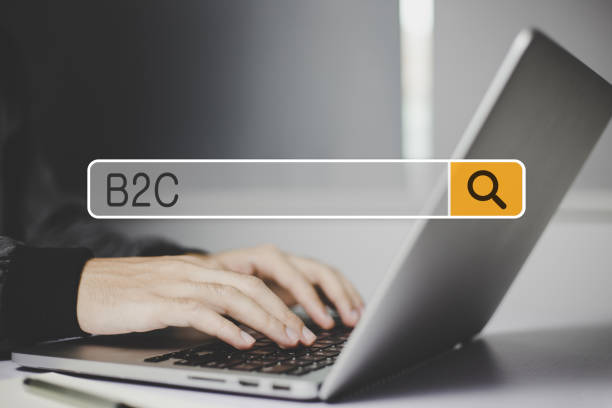
Building high-quality backlinks is the beating heart of any effective Off-Page SEO strategy.
This process requires time, effort, and a deep understanding of what makes a link valuable.
Here are some of the most important backlink building techniques you can utilize:
- Creating Unique and Shareable Content: The best way to attract natural backlinks is to create content that is so good and useful that others want to refer to it.
This could include original research, comprehensive guides, engaging infographics, or free tools. - Link Building through Guest Posting: Writing articles for other websites in a related field is an excellent opportunity to gain high-quality backlinks and introduce your brand to new audiences.
Ensure the host site is authoritative and relevant. - Broken Link Building: Finding broken links on other websites and suggesting replacing them with your own content is a win-win strategy.
You get a link, and the host website fixes its broken link. - Content Marketing and Promotion: After creating content, promote it on social media, online forums, and other relevant platforms to increase its visibility and the likelihood of it being linked to.
- Digital PR: Attract the attention of media and news websites by issuing press releases or creating viral campaigns, encouraging them to link to your content.
These approaches require precision and a guided approach to prevent the creation of low-quality or spam links that can harm your ranking.
Continuous practice and adherence to these techniques will improve your Off-Page SEO profile.
Table 1: Comparison of Backlink Building Techniques
| Technique | Description | Key Benefit |
|---|---|---|
| Guest Posting | Writing articles for other sites | Authoritative backlink and targeted traffic |
| Broken Link Repair | Replacing broken links with your content | Cost-effective and win-win method |
| Referencable Content Creation | Creating comprehensive and rich content | Attracting natural and automatic backlinks |
| Digital PR | Attracting media coverage and links from news agencies | Increased brand credibility and powerful links |
The Impact of Social Media on Off-Page SEO and Marketing

While social networks do not directly affect website ranking, they play an indirect role in strengthening Off-Page SEO.
Activity on platforms like Twitter, Facebook, LinkedIn, and Instagram can assist your overall SEO strategy in several ways.
Firstly, sharing your content on social media increases its visibility.
The more your content is shared and the more engagement it receives (likes, comments, shares), the higher the likelihood that it will be seen and linked to by other websites or blogs.
This translates to natural backlink generation.
Secondly, an active presence on social media helps with brand building and increasing brand awareness.
When your brand is more recognized, more people search for its name, which indicates to Google that you are an authoritative source in your field.
These “brand searches” indirectly positively impact rankings.
Thirdly, social networks can drive significant traffic to your website.
Even if shared links on social media are usually nofollow, the traffic that reaches your site from these platforms can help reduce bounce rate and increase user dwell time, which are positive signals for search engines.
As an analytical component, it should be noted that monitoring social signals and content sharing rates is an important part of an off-site content marketing strategy that complements Off-Page SEO.
Does your company’s website perform as well as your brand deserves? Or does it scare away potential customers?
Rasavob, with years of experience in designing professional corporate websites, is your comprehensive solution.
✅ A modern, beautiful website consistent with your brand identity
✅ Significant increase in lead and new customer acquisition
⚡ Contact Rasavob now for a free corporate website design consultation!
How Are Off-Page SEO and Domain Authority (DA/DR) Related?

The concepts of Domain Authority (DA), introduced by Moz, and Domain Rating (DR), used by Ahrefs, are important metrics directly linked to Off-Page SEO.
These metrics provide a scale of a website’s strength and authority in the eyes of search engines and predict how well a site will rank in search results.
The core of calculating these metrics is the quantity and quality of backlinks a website has received.
In other words, the stronger and more authoritative a website’s backlink profile – meaning it has more backlinks from reputable and relevant sites – the higher its DA or DR score will be.
These scores are calculated logarithmically, meaning an increase from 20 to 30 is easier than an increase from 70 to 80, and the higher the score, the harder it is to gain more points.
Increasing DA or DR is a key objective in an Off-Page SEO strategy, as increasing these metrics also increases your site’s chances of achieving higher rankings for competitive keywords.
These metrics not only indicate your link-building strength but also help you identify new opportunities for acquiring links.
For example, aiming to acquire links from websites with higher DA/DR than your own can significantly boost your authority.
This is a specialized explanation of how these metrics work and their importance in your comprehensive SEO strategy.
The Impact of Off-Page SEO on Organic Traffic and Conversion Rate
![]()
The ultimate goal of any SEO campaign is to increase website traffic and ultimately improve the conversion rate.
Off-Page SEO plays a vital role in achieving these goals.
When your Off-Page SEO strategy is successfully implemented and you acquire high-quality backlinks, your website’s credibility and authority in the eyes of search engines increase.
This increased authority directly leads to improved rankings for relevant keywords in SERPs.
Websites that rank on the first pages of search results capture a significant portion of organic traffic.
Increased organic traffic means more users visiting your website who are looking for the products, services, or information you provide.
This targeted traffic has high potential for conversion into customers or leads.
Furthermore, high-quality links from authoritative sites not only boost your credibility in the eyes of search engines but can also bring direct referral traffic.
Users from other websites are directed to your site via these links, which is itself a form of targeted traffic.
Detailed analyses show that websites with stronger backlink profiles have lower bounce rates and higher user dwell times because these sites are recognized as authoritative sources.
These signals, in turn, indicate to search engines that your content is valuable, and therefore continue to improve your ranking.
Therefore, investing in Off-Page SEO not only means greater visibility in search results but also attracting higher quality traffic and, consequently, an increased conversion rate, which is a comprehensive analysis of the returns of these activities.
Useful Tools and Resources for Off-Page SEO
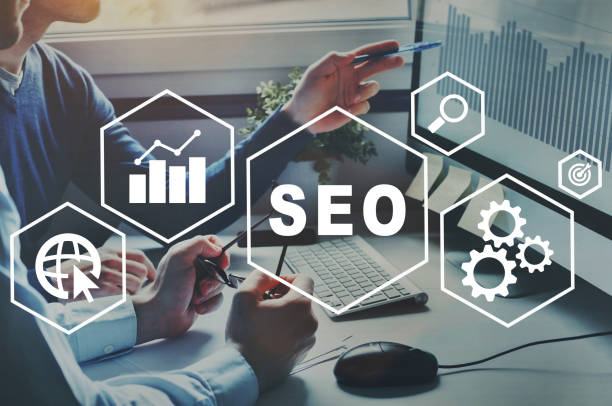
For the successful implementation of an Off-Page SEO strategy, using appropriate tools and leveraging authoritative educational resources is essential.
These tools help you analyze your backlink profile, examine competitors, and identify new link-building opportunities.
Here are some of the most commonly used and helpful tools and resources:
- Ahrefs: One of the most powerful SEO tools that offers very strong capabilities for backlink analysis, competitor research, and keyword discovery.
Its backlink reports are very comprehensive and accurate. - Semrush: This tool also provides a complete suite of SEO tools, including backlink analysis, keyword research, and competitor traffic analysis.
Its competitor analysis capabilities in Semrush are very advanced. - Moz Link Explorer: Part of the Moz tool suite used for backlink analysis and checking Domain Authority (DA) and Page Authority (PA).
This tool is useful for identifying link-building opportunities and assessing link quality. - Google Search Console: A free tool from Google that provides valuable information about how your site appears in searches, crawl errors, and backlinks identified by Google.
Every SEO professional should use it. - Ubersuggest (by Neil Patel): A simple and user-friendly tool for keyword research, competitor analysis, and backlink checking, especially useful for beginners and has a usable free version.
Educational articles, webinars, and specialized courses from reputable sources like Moz Blog, Ahrefs Blog, Search Engine Journal, and Google Search Central can also significantly enhance your knowledge in Off-Page SEO and help you stay updated with the latest changes and best practices.
Combining the use of these tools and resources provides a guiding approach for anyone who wants to succeed in Off-Page SEO.
Table 2: Off-Page SEO Analysis Tools
| Tool Name | Primary Use | Key Feature |
|---|---|---|
| Ahrefs | Backlink analysis and keyword research | Most accurate backlink data |
| Semrush | Search marketing and competitor analysis | Comprehensive competitor analysis |
| Moz Link Explorer | Domain authority and link profile | DA and PA metrics |
| Google Search Console | Site performance report in Google | Direct data from Google |
Common Challenges and Mistakes in Off-Page SEO
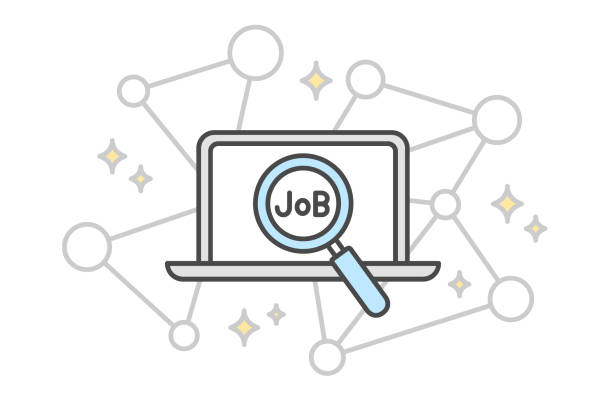
Despite the high importance of Off-Page SEO, there are numerous mistakes and challenges in this area that can lead to Google penalties or a lack of progress.
One of the biggest mistakes is purchasing bulk, low-quality backlinks.
Google strongly combats unnatural and manipulative link-building methods, and websites using these methods may face severe ranking drops or even removal from search results.
These types of backlinks typically come from spammy, irrelevant sites, or Private Blog Networks (PBNs), which cause harm instead of help.
Another challenge is the lack of diversity in the backlink profile.
Relying solely on one type of link or specific source (e.g., only guest posting or only links from directories) can be risky.
A natural and strong link profile should include a mix of dofollow and nofollow links, from various domains and with diverse anchor texts.
Ignoring the domain and page authority of linking websites is also a common mistake.
A link from a low-authority website not only has no value but can also harm your SEO profile.
Furthermore, a lack of continuous monitoring of backlinks and not disavowing toxic links can become problematic in the long run.
The thematic mismatch between the linking site and your site is another mistake.
It’s questionable how some websites, despite using gray or even black hat methods, manage to rank high for a period.
The answer is that Google’s algorithms are constantly improving, and sooner or later, these tactics will be identified and penalized.
Therefore, adhering to white-hat Off-Page SEO practices is always the best and most sustainable strategy for long-term success.
Does your company’s website perform as well as your brand deserves? Or does it scare away potential customers?
Rasavob, with years of experience in designing professional corporate websites, is your comprehensive solution.
✅ A modern, beautiful website consistent with your brand identity
✅ Significant increase in lead and new customer acquisition
⚡ Contact Rasavob now for a free corporate website design consultation!
Future Trends in Off-Page SEO and Adapting to Them

The world of SEO, and consequently Off-Page SEO, is constantly evolving.
Google’s algorithms face major and minor updates annually, aiming to provide more accurate and useful results to users.
To succeed in the future, one must adapt to these trends and keep strategies updated.
One important trend is a greater emphasis on the true meaning and purpose of content.
Google increasingly values understanding user intent and the semantic connection between content pieces.
This means that backlinks should align with your content not only in terms of domain authority but also in terms of topical relevance.
Another trend is the increasing importance of E-E-A-T (Experience, Expertise, Authoritativeness, and Trustworthiness).
These factors are crucial, especially for websites in health, finance, and legal fields (Your Money Your Life – YMYL).
Building backlinks from authoritative and expert sources, and creating a strong brand that demonstrates your expertise, significantly helps strengthen E-E-A-T.
Furthermore, it is expected that the impact of branding signals and activity on specialized forums and platforms (beyond general social media) on Off-Page SEO will increase.
Participating in specialized discussions, answering user questions, and establishing yourself as an authority in your field can indirectly lead to natural link acquisition and increased authority.
Artificial intelligence will also play an increasing role in web analysis and ranking, which may mean a need for more analytical and data-driven approaches in identifying link-building opportunities.
Overall, the future of Off-Page SEO depends on creating outstanding content, building meaningful relationships, and focusing on authority and expertise.
These are among the important news in the field of SEO that should be paid attention to.
Conclusion and Comprehensive Off-Page SEO Strategy for Sustainable Success
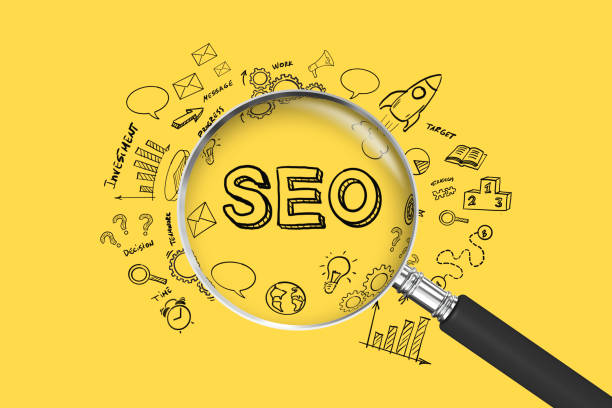
In conclusion, it can be said that Off-Page SEO is not an option but a necessity for any online business seeking visibility and sustainable success in the digital space.
It goes beyond simply building backlinks; it means building credibility, fostering trust, and introducing your brand to a wider audience through channels outside your website.
To achieve sustainable success in Off-Page SEO, a comprehensive and strategic approach is essential.
This strategy should include the following:
- High-Quality and Valuable Content Creation: Content that naturally encourages users and other websites to link to it.
- Conscious and Quality Link Building: Focusing on acquiring backlinks from authoritative, relevant, and high-authority domains, using white-hat methods such as guest posting, digital PR, and broken link building.
- Smart Social Media Activity: Utilizing social platforms to promote content, increase brand visibility, and attract targeted traffic.
- Continuous Monitoring and Analysis: Using SEO tools to track the backlink profile, identify opportunities, and resolve potential issues.
- Adaptation to Changes: Keeping knowledge and strategies updated according to the latest Google algorithm updates and industry trends.
Off-Page SEO is a continuous and time-consuming process whose results may not be immediately visible.
However, investing in it means building a solid foundation for organic growth and a significant increase in traffic and conversion rates in the long term.
This is an engaging yet serious guide to achieving bigger goals in the web world.
By correctly implementing these tips, your position in search engines will be strengthened, and you will have a more powerful online presence.
Remember that Off-Page SEO is a vital element in your comprehensive digital marketing strategy.
Frequently Asked Questions
| Question | Answer |
|---|---|
| What is Off-Page SEO? | Off-Page SEO refers to a set of activities and methods performed outside your website to improve its ranking in search engines, such as backlink building. |
| Why is Off-Page SEO important for a website? | Off-Page SEO indicates to search engines that your website is authoritative, popular, and trustworthy, which helps increase domain authority and ranking. |
| What is the most important factor in Off-Page SEO? | Backlinks, or links from other sites to your site, are the most important factor, especially if they are from authoritative sites. |
| What are the characteristics of a high-quality backlink? | A high-quality backlink comes from reputable sites (with high authority), relevant to your site’s topic, and with appropriate (natural) anchor text. |
| Do social media networks play a role in Off-Page SEO? | Yes, sharing content on social media can help increase visibility and indirect traffic, and send positive social signals to search engines. |
| What is PBN and is it recommended? | PBN (Private Blog Network) is a network of private websites used to build backlinks to the main site. Google considers this method spam, and its use is strictly prohibited and can lead to penalties. |
| How is Natural Link Building done? | By producing valuable and shareable content, establishing relationships with bloggers and influencers, and attracting media attention. |
| What is Anchor Text in a backlink? | It is the text within which the link is placed. Using diverse and keyword-relevant anchor texts appears more natural and helps with SEO. |
| What is the connection between Local SEO and Off-Page SEO? | Local SEO includes off-site activities such as listing on Google My Business, local directories, and obtaining online reviews, which help businesses appear in local search results. |
| How can competitor backlinks be analyzed? | By using tools like Ahrefs, Semrush, or Moz, you can analyze competitors’ backlink profiles and identify new link-building opportunities. |
And other services by Rasavob Advertising Agency in the field of advertising:
Smart Content Strategy: Revolutionize website visits with marketing automation.
Smart Social Media: Transform SEO ranking with attractive UI/UX design.
Smart Website Development: A blend of creativity and technology for digital branding through precise audience targeting.
Smart Digital Advertising: An effective tool for campaign management through key page optimization.
Smart Custom Software: Designed for businesses seeking user engagement through attractive UI/UX design.
And over hundreds of other services in the field of internet advertising, advertising consultation, and organizational solutions.
Internet Advertising | Advertising Strategy | Advertorials
Sources
Off-Page SEO Tutorial
Comprehensive Off-Page SEO Guide
What is Off-Page SEO?
Backlink Building Strategies
? Are you ready for your business to grow and shine in the digital world? Rasavob Afarin Digital Marketing Agency paves the way for your success by providing comprehensive and professional services including custom website design, Search Engine Optimization (SEO), and content marketing strategies. Build a bright future for your brand with us and take a big step towards progress.
📍 Tehran, Mirdamad Street, next to Bank Markazi, Kazerun Jonubi Alley, Ramin Alley, No. 6



